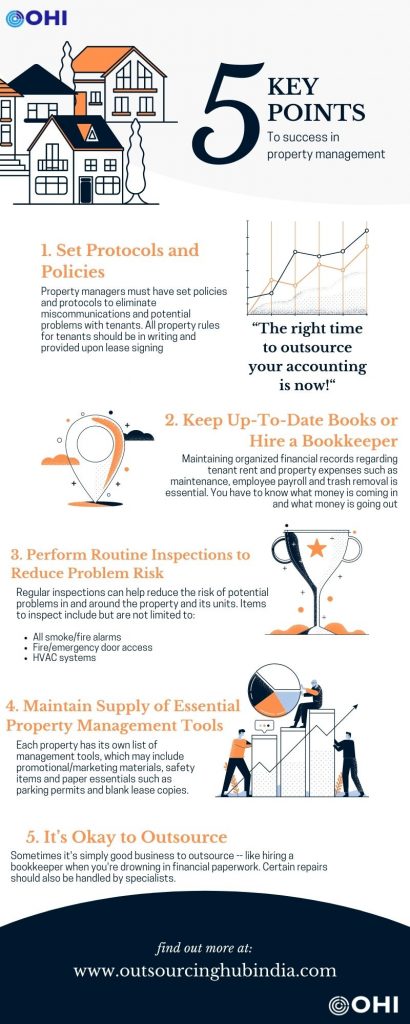
The Evolution of Residential Property Management: An In-depth Accounting Perspective in Modern Real Estate
- August 10, 2023
- OHI

In the vast tapestry of the real estate sector, numerous threads weave together to form its intricate design. One such vital thread is the evolution of residential property management companies. By delving deep into this evolution from a financial and accounting standpoint, we can discern the shifts and trends that have sculpted the modern landscape of real estate.
Historically, the world of property management was simple. Individual landlords utilized personal ledgers to keep track of their financial transactions, much like one would manage household accounts. Rent, which flowed in as the primary source of income, was juxtaposed against routine expenses. Such costs included maintenance, local taxes, occasional property repairs, and improvements. This system, while uncomplicated, lacked depth and scalability, especially as portfolios began to grow. It was clear that with the burgeoning world of real estate property management, more refined systems would soon be necessary.
With the real estate sector becoming more professional and properties increasingly becoming significant investment assets, a more robust accounting system was needed. Enter the double-entry bookkeeping system—a method that changed the game for residential property management services. By offering a comprehensive view of the property’s financial standing, owners and managers could quickly pinpoint profitability, understand liabilities, and ensure that assets were correctly leveraged. This system wasn’t merely about tracking; it became a tool for strategic financial planning.

As technology began to shape industries, the domain of property management wasn’t left behind. Recognizing the unique needs of residential property management companies, software developers began crafting tailored solutions. These platforms, while grounded in traditional accounting practices, incorporated features such as automated rent reminders, digital ledgers for each tenant, property maintenance cost trackers, and even predictive analytics for market trends. The age of manual bookkeeping was waning, making room for digital sophistication.
The world was becoming a global village, and real estate was no exception. With cross-border investments and multi-country property portfolios, there arose a need for expertise that transcended local practices. Real estate outsourcing companies emerged as the solution. Offering a blend of local knowledge with global best practices, these firms provided a one-stop solution, ensuring properties were not only efficiently managed but also adhered to international financial standards.
Modern residential property management services have evolved into complex organizations that operate at the intersection of real estate expertise and financial acumen. They juggle a myriad of tasks—maintaining multi-tiered rent structures, optimizing tax benefits across diverse geographies, and ensuring compliance with ever-evolving regulations. Moreover, they provide advisory services, helping property owners understand market dynamics, anticipate future trends, and make informed investment decisions.
With advancements in technology, especially Artificial Intelligence (AI) and machine learning, the future of real estate property management looks set for another revolution. Automated bots handling queries, AI-driven analytics forecasting market shifts, and machine learning algorithms optimizing rent structures are just the tip of the iceberg. The focus is shifting from mere management to strategic growth-driven management, where technology plays the role of both an enabler and a disruptor.
While the journey has seen significant advancements, challenges remain. Adapting to rapid technological changes, ensuring data security in digital platforms, navigating the maze of global regulations, and meeting the rising expectations of tech-savvy tenants will test the mettle of residential property management companies. However, these challenges also present opportunities for firms to differentiate themselves, innovate, and offer unparalleled value to property owners and tenants alike.
Charting the course from rudimentary personal ledgers to today’s sophisticated, tech-driven platforms provides a panoramic view of the evolution of residential property management companies. It demonstrates the industry’s adaptability and tenacity.. As the sector continues to evolve, adapt, and grow, one thing remains certain: the confluence of real estate expertise with financial acumen will always be at its core. For stakeholders, understanding this intertwined relationship will be the key to unlocking the vast potential that the world of real estate promises.
Contact us for a customized NO OBLIGATION proposal for outsourcing your accounting activities.







